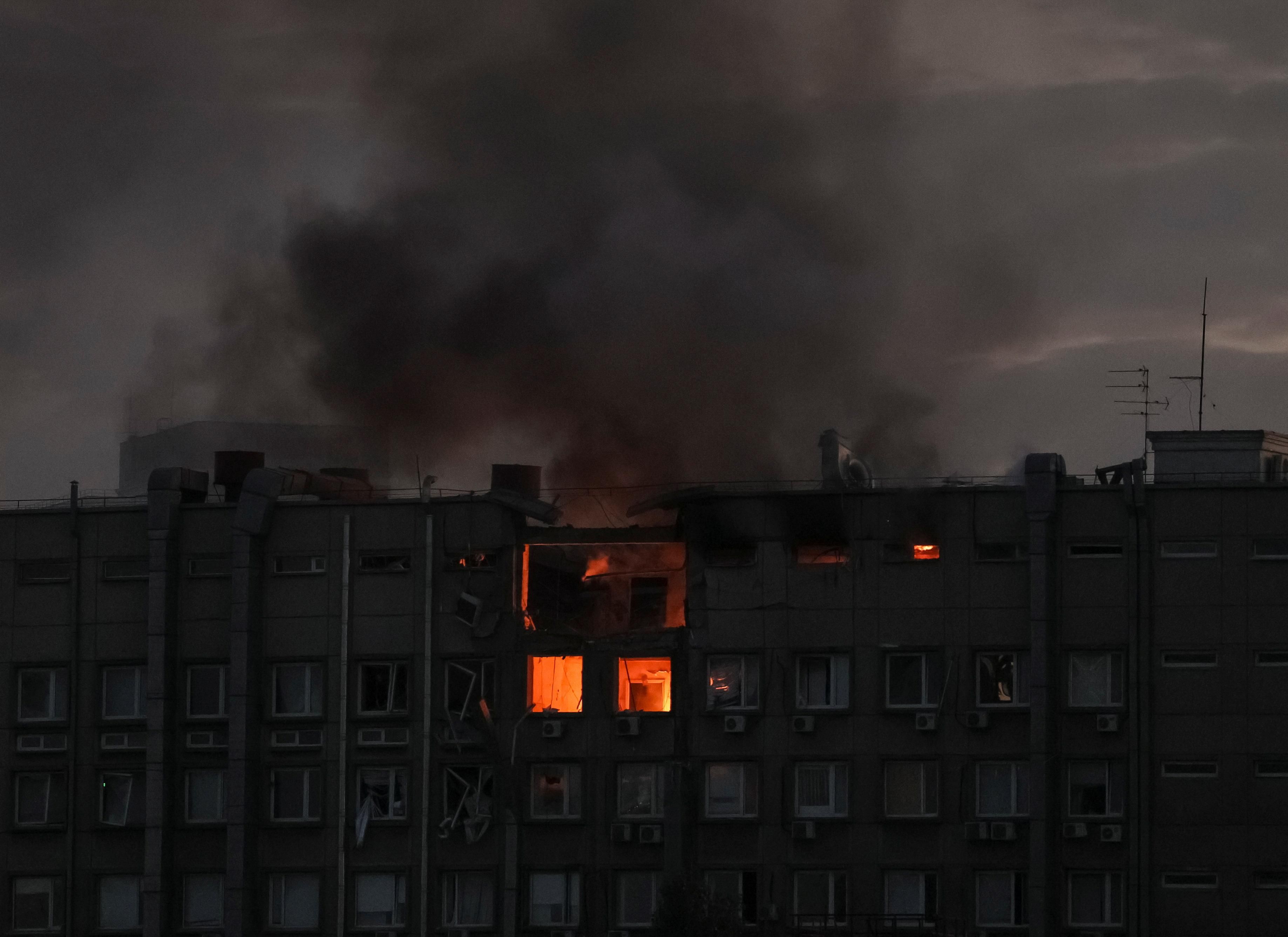What We’re Watching: Drones over Kyiv, GOP’s advantage, Kishida’s church probe
Russia starts droning on
Russia attacked targets across Ukraine on Monday with Iranian-made “suicide drones,” which fly into targets and then explode. At least four people were killed when one of them struck an apartment complex in Kyiv. The building is located across the street from the offices of Ukraine’s national energy company, which may have been the intended target. That’s consistent with Russia’s recent approach of striking critical civilian infrastructure in retaliation for Ukraine’s sabotage of the Kerch Strait bridge earlier this month. Also on Monday, a Russian drone strike crippled a major sunflower oil export terminal in the southern city of Mykolaiv, raising the prospect of a renewed turbulence in prices for cooking oil, a staple in kitchens around the world. Tehran denies supplying the drones, but experts say they are clearly Shahed-136 drones from Iran. Until now, drones have been deployed to the most devastating effect by the Ukrainians, but Russia — suffering military setbacks on the ground and unable to establish aerial dominance — could be seeking a way to strike lots of targets crudely and at a relatively low cost. Although drones are slow-moving and easier to shoot down than jets or missiles, Ukraine is still calling for better air defenses overall. See our recent interview with a Ukrainian drone operator here.
Republicans’ midterm edge
We are in the homestretch before US midterm elections on Nov. 8, and things are looking up for … Republicans. A New York Times/Siena College poll released Monday shows that economic issues are top of mind for voters, with 44% of Americans polled listing it as their top concern, up from 36% in July. What’s more, as inflationary pressures persist, a majority of voters (64%) now see Republicans as better equipped to tackle cost-of-living issues. Part of the reason for the Dems’ poor outlook is that midterms are often seen as a referendum on the president’s performance, and President Joe Biden is not a popular guy. Another trend identified by the poll is growing support for Republicans amongst independents – a crucial electorate – with the GOP having edged out team blue to establish a 10-point lead among these voters. These revelations are devastating for Democrats, who were hoping the reversal of Roe vs. Wade – an unpopular move with independents – as well as renewed calls for gun regulation after a spate of recent shootings, might bode well for their electoral prospects. The GOP looks set to take control of the House, but keep an eye on the Senate, where several key races are neck-and-neck.
